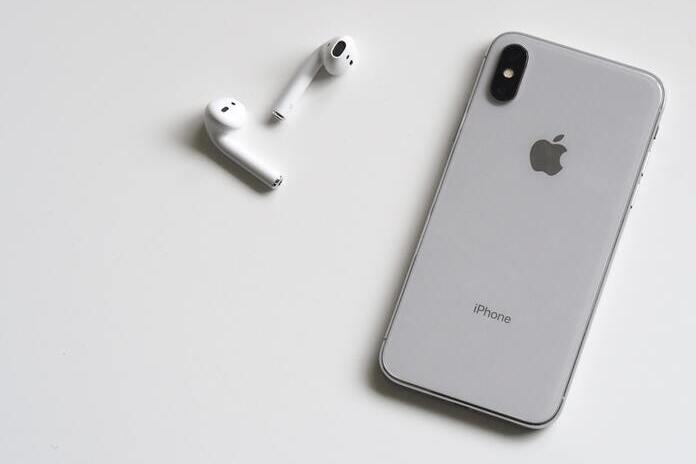Apple Stock (NASDAQ:AAPL)
In recent years, Apple has been one of the most lucrative firms in the world, with continuously high earnings and revenue growth. This growth has contributed to Apple’s position as one of the most valuable corporations in the world. As a direct consequence of this, the business has been in a position to provide its shareholders with value in the form of dividends. The dividend payment made by Apple in 2020 was $3.28 per share, which is an increase from the dividend payment made in 2019, which was $3.05. This equates to an approximate dividend yield of 0.6 percent.
When Apple (NASDAQ:AAPL) releases profits at the end of this month, the corporation will increase its dividend and expand the stock-repurchase program, as this easy forecast suggests.
In point of fact, for the past ten years, Apple (NASDAQ:AAPL) has made it a practice to give the market an update on its capital-return strategy in conjunction with the publication of its earnings for the March quarter.
Apple has a history of aggressively returning cash to shareholders, most frequently in the form of stock repurchases but also in the form of dividend increases that have been gradually increasing over time.
At the moment, Apple distributes dividends to shareholders at a rate of 23 cents per share on a quarterly basis, which results in a yield of 0.6%. The fee was increased by the corporation by one penny, which is equivalent to a slight increase of just under 5%. The prior year, there was a 7% increase in the amount. Even though a two-cent increase, which would be just under 9%, would bring the annualized rate to a nice round dollar, it seems reasonable to believe that Apple will raise the rate once again this year by a penny, which would be 4%, to 24 cents quarterly. This would bring the annualized rate to a nice round dollar.
The current state of Apple stock-repurchase program is both more interesting and more important to the company’s bottom line. A buyback authorization for the same amount as the one from the year before was approved by Apple’s board of directors the year before last. The corporation has announced a total of $405 billion in stock buybacks over the course of the previous five years combined. As of the end of the company’s fiscal year in 2017, it had repurchased 4.7 billion shares, which resulted in a 23% decrease in the total number of shares outstanding.
During the earnings conference call for Apple in February 2018, Chief Financial Officer Luca Maestri revealed that the business intended to work toward achieving a net-cash-zero position over the course of time. At that time, Apple had a total of $285.1.1 billion in cash and marketable securities, while its net cash amounted to 163 billion dollars.
Apple has been making significant headway toward its objective, gradually reducing both the gross and net cash holdings as it works toward its objective.
Apple had $165 billion in cash and marketable securities as of the end of the December quarter, with a net cash balance of $54 billion; to put it another way, the company is two-thirds of the way toward achieving its goal of having zero net cash. In each of the past 16 quarters, Apple has repurchased at least $16 billion worth of its own stock, with the company spending $19 billion during the most recent quarter.
It is important to keep in mind that the totals will continue to increase on their own due to the fact that Apple continues to create massive amounts of cash, with operating cash flow reaching $34 billion in the most recent quarter. Nonetheless, Apple persists in the belief that it has more cash on its balance sheet than is necessary for the operation of the business as well as the development of new products and services. And because the corporation has never shown any inclination to engage in substantial mergers or acquisitions, the most obvious use for the excess cash is to return it to the holders of the company’s shares.
As Apple reaches a cash-neutral position, the question of what will happen to the rate of its stock buybacks is an intriguing one that won’t likely be answered for at least a couple more years. There is little doubt that the corporation will continue to repurchase shares; nevertheless, at some time in the future, the pace may drop, which may eventually have implications for Apple stock.
Apple has recently been confronted with a number of issues, some of which may have an effect on the company’s performance in the future. The ongoing COVID-19 epidemic has caused disruptions to the worldwide supply chain, which has the potential to damage Apple’s capacity to manufacture and deliver its products. Also, the corporation is facing greater rivalry in the market for smartphones, particularly from Chinese manufacturers like Huawei and Xiaomi. This competition is particularly fierce in China.
Apple has persisted in developing new products and broadening its selection in spite of the difficulties it faces. The business just released its first line of 5G-enabled iPhones, which has the potential to contribute to the company’s sales growth in the years to come. In addition, Apple has been actively growing its services sector, which includes the introduction of new products and services such as Apple Music, iCloud, and the App Store.
In conclusion, Apple’s dividend and buyback programs offer value to shareholders, however, recent developments imply that the business may face challenges in the years to come. Apple’s share price has increased significantly over the past year. But, there are reasons for optimism, including Apple’s ongoing commitment to innovation and development in new markets. When making any decisions about investments, investors should always give careful consideration to their own financial goals and the amount of risk they are willing to take.
Featured Image: Pexels















